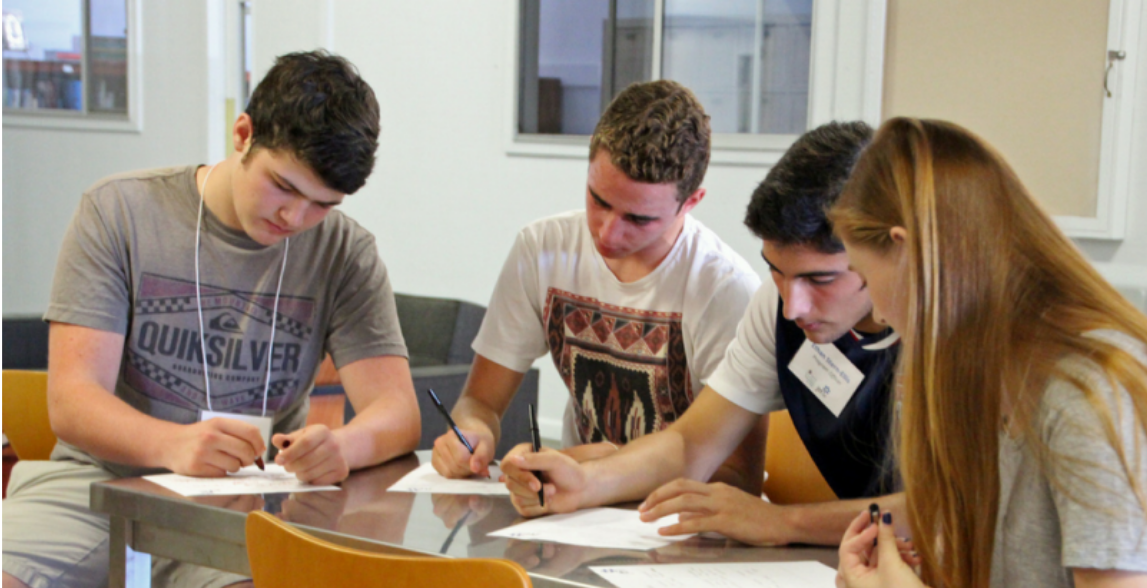by, Danielle Segal, JTFN Program Manager
“All who are hungry, let them enter and eat!”
On Friday, we will say these words as we symbolically and literally open our doors and share our homes. It is tradition to welcome those who are in need to our Seder table… and Elijah the prophets might even pop by to drink his wine! This act of opening the door reminds us about the responsibility of hospitality, and how we can strengthen our Kehillah Kedoshah (holy community) by employing some simple, welcoming acts.
Earlier in March, I had the privilege of attending and presenting at the Foundation for Jewish Camp’s Leadership Assembly, their biennial conference where camp professionals, partners and advocates gather for networking and professional development. Various topics were addressed, such as the changing landscape of Jewish and family life, teen engagement and empowerment, year-round engagement, child safety, disability inclusion and Israel. The moment I stepped into the space, I felt welcomed and supported: just as camp professionals strive to create welcoming and warm spaces for their campers, this conference achieved the same excellence in taking care of their professional staff, lay leaders and guest speakers. Hospitality extended from all corners of the conference: from the camp-style friendship bracelet resources on the tables, to the mindful signage on bathrooms that embrace gender diversity.
We want the participants in our teen philanthropy programs to embrace hospitality, whether that is welcoming a new board member, inviting guest speakers or using thoughtful language. But how can we practice what we preach? Here are some ideas to make your program a haven of hospitality:
1. Signs point to yes
Whether you are holding your sessions in your usual building, or you are renting outside space, there might be those who have never set foot into your chosen location. Put up signs directing the way and make clear which rooms are in use and which should not be entered. Already well into your program year? Don’t remove those signs! There might be visiting guests who will need the extra help in directions. Consider also adjusting bathroom signs so that they utilize inclusive language.
2. RFP, LOL, Sheket B’Vakasha*?
Abbreviations, acronyms and Hebrew phrases might make note-taking and speaking easier (and might also serve as a ritual or a way to bond the group), but this can also exclude participants who might not be part of previous conversations, or who are not privy to camp-style Hebrew idioms. In printed material and when addressing the room, be sure to explain your acronyms and abbreviations so that everyone in their group feels comfortable, whether you’re discussing RFPs (Request For Proposals) or ruach (Spirit).
3. Allergy alert
From pizza to Twizzlers, many programs serve food and snacks to their teens during their sessions. But on those evenings you serve pizza, is there a gluten-free alternative for the teen with Celiac disease? When snacking on Trail Mix, is there a nut-free option for those with nut allergies? Pre-empting dietary requirements allows you to be sensitive to the varying needs of your group.
4. What’s in a name?
You spent several get-to-know-you sessions encouraging your teens to learn each other’s name, but while managing a large, multi-cohort program, you are still struggling to recall everyone in your group. Even though it’s half way through the year, better late than never! Greeting people by name as they walk into the program will add that personalized touch. Go one step further and find out the names of their younger siblings – this could be a powerful tool when recruitment season comes around and additional family members fall into the program age-bracket.
The Pesach ritual of opening our home reminds us – and encourages us! – to practice what we preach. We become acutely aware, through the retelling of the Exodus story, that we were once strangers. Let’s take this opportunity to stretch our hospitable muscles and lead by example.
*Request for proposals, Laugh Out Loud, Quiet please
